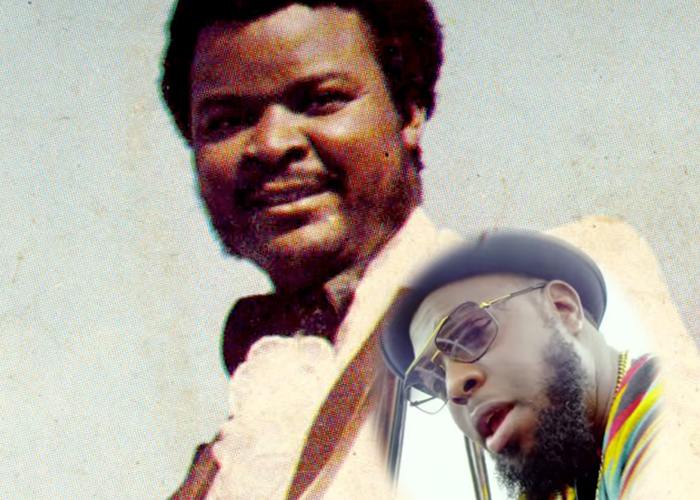Groundbreaking electro-funk musician of the 70’s and 80’s William Onyeabor has passed. According to a statement from the singer’s record label Luaka Bop, Onyeabor died peacefully in his home in Enugu on January 16th after a brief illness.
It is with incredibly heavy hearts that we have to announce that the great Nigerian business leader and mythic music pioneer William Onyeabor has passed away at the age of 70.
William wasn’t always signed to Luaka Bop though, from 1977 to 1985 he originally composed and self-released a series of electronic funk albums. In recent years however, his music was given a new lease of life by the indie label, with the release of a best of compilation entitled Who Is William Onyeabor? in 2013, followed by the 2014 film documentary Fantastic Man.
Vinyl copies of William’s old records now go for upwards of $200 on the market and Luaka Bop has helped cultivate a strong following for the mythic singer abroad. Music historian Uchenna Ikonne also payed a major role in this, and is responsible for much of what the world knows about the singer. Today, William Onyeabor is revered as genius who was ahead of his time in the way he used analog synthesizers to create an incredible electro-funk sound. But while he’s also respected at home, Onyeabor’s accomplishments aren’t talked about in such glowing terms as they are abroad – his is the archetypal prophet-not-being-respected-in-his-home story.
A lot of this is down to the man himself – Onyeabor reportedly never performed his music live and the only known interview he granted was with BBC Radio 6 Music’s Lauren Laverne. But it was his choice to all but walk away from music in the 80’s that did the most damage to Onyeabor’s legacy at home. According to the label’s statement –
William Onyeabor would never speak about himself and for a long time refused many of the interview requests that came his way. Having become Born Again in the latter part of life, he only wanted to speak about God.
We recently documented Onyeabor’s transition and drew parallels between his journey, the journey of other converts Chris Okotie, Adewale Ayuba and Onyeka Onwenu and that of the rapper Lynxxx. Unlike Lynxxx who still puts out new music albeit with a social message, Onyeabor stepped away entirely.
Nearly 3 decades after his last album, an eleven minute gospel tune titled “Many Mansions” mysteriously surfaced on the internet and was credited to the singer. Unfortunately, the video has since been taken down from YouTube. These days, samples – from the likes of Canadian producer Daphni, JD Twitch and now Timaya – remain the best way to remind people of just how much of a genius William Onyeabor truly was.
As my Onyeabor Moog gently weeps… Thank you for the music William. pic.twitter.com/YRC5VHGfNq
— Optimo (Espacio) (@JDTwitch) January 18, 2017
Onyeabor’s music got the 2016 sample treatment when Nigerian pop star Timaya released “M.O.N.E.Y”, an uptempo record that was the 49th most played song in the country last year. The song was moderately popular nationwide but was particularly well-received in Eastern Nigeria – where Onyeabor is from, where he lived for most of his life and where he eventually died. Being the part of the country that fought to secede, the Civil War (1960 -70) had a devastating impact on Eastern Nigeria. Onyeabor spoke a lot about this devastation in his music and his records were cathartic for many Easterners. There is no doubt that a big part of the reason why Timaya’s “M.O.N.E.Y” caught on in those parts was the inclusion of Eastern highlife superstar Flavour but the record is also nostalgic in that Timaya chose to sample a line from “When the Going Is Smooth & Good” (1985) – Onyeabor’s most popular hit.
When the going is smooth and good, many many people will be your friend
Also, the theme of Timaya’s “M.O.N.E.Y” was loosely built around Onyeabor’s “When the Going Is Smooth & Good”. But rather than serving as a cautionary tale of how success and friendship go hand in hand, like the original song did, Timaya’s version instead extols the values of materialism and keeping score against people who didn’t treat you well when you were struggling financially – some of the very things that Onyeabor turned his back on when he became a Born Again Christian.
Given his life change, one wonders if the the legendary musician would approve of the “M.O.N.E.Y” record and the way the sample was reused. Being that he’s painted as something of a recluse, one also wonders if Onyeabor ever got to listen to the record before he passed. In his absence, and to a generation that may not be aware of the singer and how revolutionary he was, Timaya has helped to keep Onyeabor’s music alive, even if it was probably against the late singer’s best wishes.


